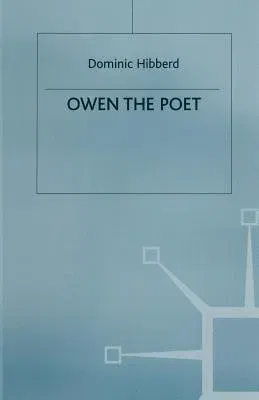Wilfred Owen's poetry is now very widely known as the finest that came
out of the First World War. But much about the poet and his work has not
been fully understood. This book, based on unrivalled research, is the
first to study of Owen's complete poetic achievement, revealing the
uniqueness, strangeness and unity of what he called his 'poethood'. His
war poems are shown to be a consistent development from his prewar verse
and his unswerving allegiance to Romanticism; they grew out of a pattern
of mythologised secret experience that took shape in some of his
least-known manuscripts before he knew anything of the trenches. Owen
lived for poetry; many unfamiliar aspects of that life are brought into
focus, including his early discovery of Georgianism, his battle wirh
Revivalist religion, his debt to the French Decadence, his alleged
cowardice, the torment of his shellshock and the remarkable
'sociological' treatment he received for it, his sexual nature and his
friendship with Oscar Wilde's beleaguered disciples in 1918, and his
supreme courage in making poetry out of inner horrors deliberately
'recollected in tranquility'. Learning from Wordsworth and Shelley,
Aesthetes and Decadents, Sassoon and the Georgians, Hardy, Barbusse,
Russell, Edward Carpenter and many others, Owen realised his life's
ambition and became a profoundly origianal poet. Owen the Poet ends with
chapters on two of his richest works: 'Strange Meeting', his worst
shellshock nightmare, and 'Spring Offensive', the epilogue to all he
wrote. Notes, appendixes and bibliography complete what is likely to be
the most authoritative book on its subject for many years to come.


